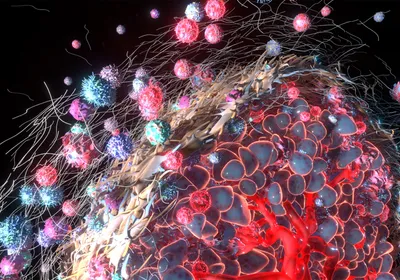 ANDRZEJ KRAUZE
ANDRZEJ KRAUZE![]() Normal cells do not grow and divide forever. Even before they get old and die, many cells in the body are quiescent: temporarily out of the proliferative cell cycle, waiting for a signal to wake up and become active again. Cells grown in culture will also enter such a state, either because they’re too crowded or have run out of nutrients. Princeton University’s Hilary Coller recently found that some of these cells are surprisingly metabolically active, even while not proliferating.
Normal cells do not grow and divide forever. Even before they get old and die, many cells in the body are quiescent: temporarily out of the proliferative cell cycle, waiting for a signal to wake up and become active again. Cells grown in culture will also enter such a state, either because they’re too crowded or have run out of nutrients. Princeton University’s Hilary Coller recently found that some of these cells are surprisingly metabolically active, even while not proliferating.
Previous work on lymphocytes, Coller says, suggested that quiescence is associated with a “sleepy metabolic state” during which cells take up less glucose and excrete fewer waste products, such as lactate. Whereas a proliferating cell has to replicate all of its contents in order to divide, quiescent cells don’t make new proteins, lipids or organelles, and aren’t replicating DNA.
Coller says that quiescence must be “fundamentally important,” because many cells normally spend long periods in this state, awaiting activation. Immunological memory depends on resting lymphocytes being ready to proliferate when exposed to a familiar antigen, fibroblasts slumbering in the skin need to activate to heal wounds, liver regeneration depends on activation of quiescent hepatocytes, and germ cells can spend many years waiting for their moment. ...






















